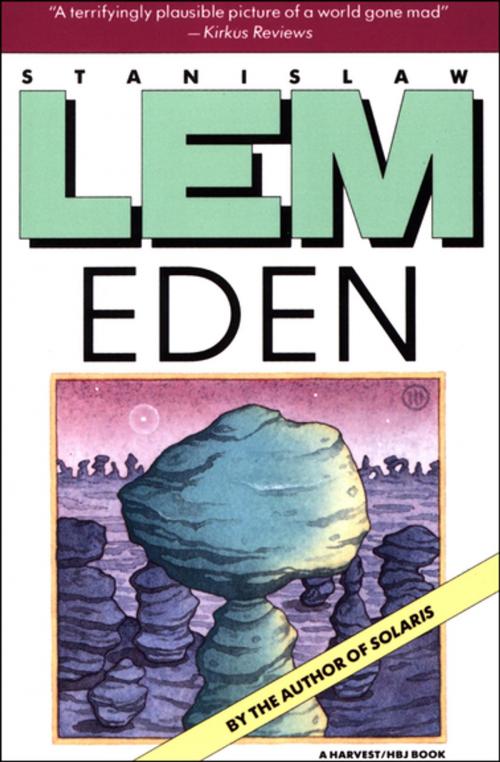| Author: | Stanislaw Lem | ISBN: | 9780547995069 |
| Publisher: | Houghton Mifflin Harcourt | Publication: | October 31, 1991 |
| Imprint: | Mariner Books | Language: | English |
| Author: | Stanislaw Lem |
| ISBN: | 9780547995069 |
| Publisher: | Houghton Mifflin Harcourt |
| Publication: | October 31, 1991 |
| Imprint: | Mariner Books |
| Language: | English |
From the author of Solaris, this novel of an encounter with an alien intelligence creates “a terrifyingly plausible picture of a world gone mad” (Kirkus Reviews).
Six explorers—the Captain, Doctor, Engineer, Chemist, Physicist, and Cyberneticist—crash land on a beautiful but strange planet, fourth from another sun. The landscape is bizarre, hosting acrid deserts, hissing trees, and thick spiderlike vegetation. But it is the signs of humanity that are most puzzling. In a labyrinth of plant-shaped buildings are dead ends, passageways, domes, vaulted ceilings, and giant statues. And everywhere there are images of death: mass graves, bodies in ditches and wells, clusters of egglike structures filled with skeletons.
Something is wrong with the inhabitants of Eden. But as the crew unlocks the secrets of this twisted society, the most haunting fact they must face is how similar it is to their own.
The Chicago Tribune lauded Stanislaw Lem as “not only a marvelous spinner of tales of the fantastic but also a challenging philosopher of the meanings and ramifications of technology.” Eden stands as a timeless and powerful examination of the conflict between human nature, human discovery, and all-too-human flaws.
From the author of Solaris, this novel of an encounter with an alien intelligence creates “a terrifyingly plausible picture of a world gone mad” (Kirkus Reviews).
Six explorers—the Captain, Doctor, Engineer, Chemist, Physicist, and Cyberneticist—crash land on a beautiful but strange planet, fourth from another sun. The landscape is bizarre, hosting acrid deserts, hissing trees, and thick spiderlike vegetation. But it is the signs of humanity that are most puzzling. In a labyrinth of plant-shaped buildings are dead ends, passageways, domes, vaulted ceilings, and giant statues. And everywhere there are images of death: mass graves, bodies in ditches and wells, clusters of egglike structures filled with skeletons.
Something is wrong with the inhabitants of Eden. But as the crew unlocks the secrets of this twisted society, the most haunting fact they must face is how similar it is to their own.
The Chicago Tribune lauded Stanislaw Lem as “not only a marvelous spinner of tales of the fantastic but also a challenging philosopher of the meanings and ramifications of technology.” Eden stands as a timeless and powerful examination of the conflict between human nature, human discovery, and all-too-human flaws.















